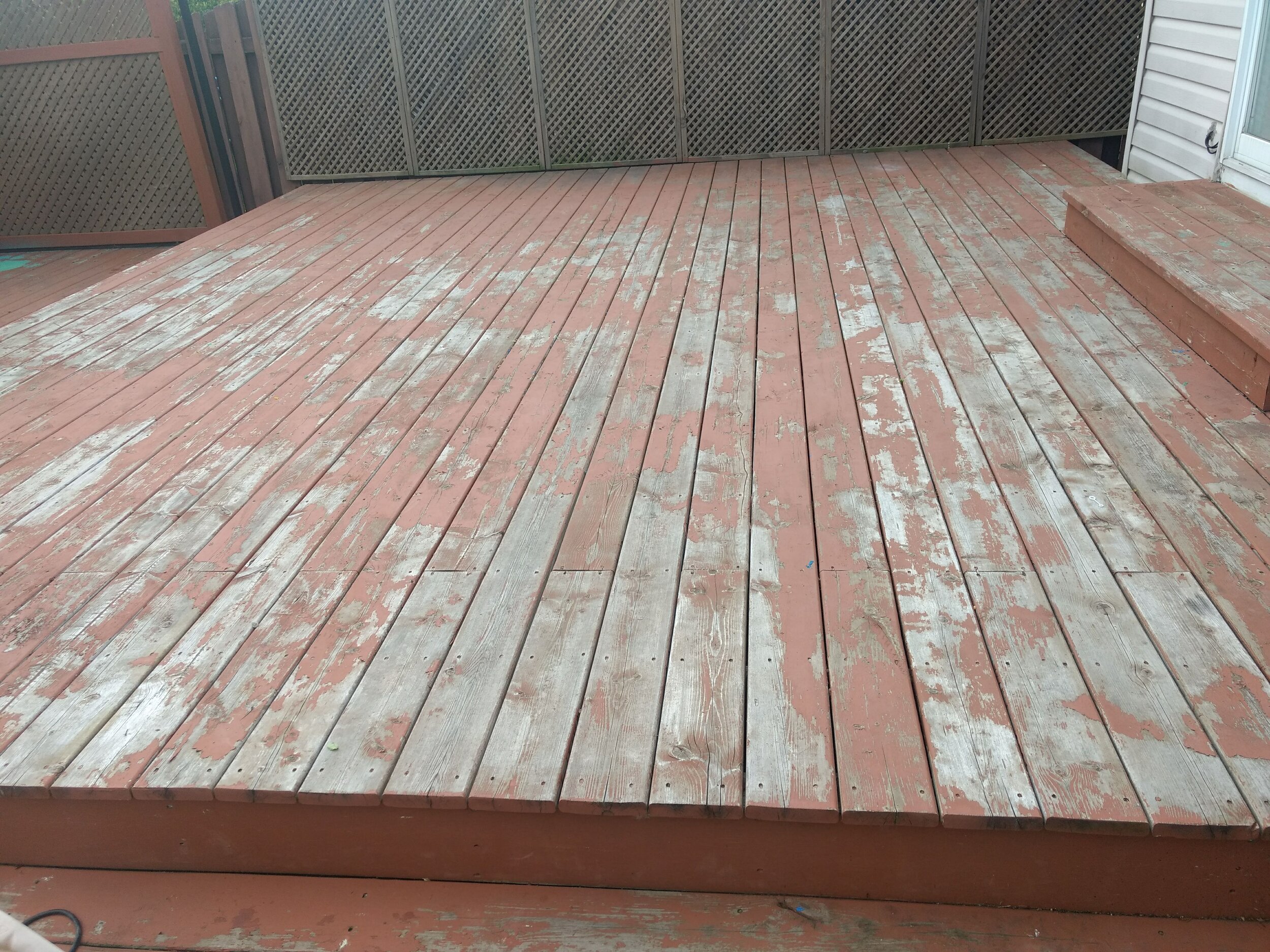Truth Revealed: Water Based vs Oil Based Stain Against Deck Peeling
Prospective clients often ask me if water based stains are better than oil based stains, or what will last the longest between transparent / semi-transparent / solid stains, or if newer age technology hybrid stains are the way to go.
I always answer that question with another question…
Do you want a peeling problem or a fading problem?
The truth is, it doesn’t matter if they hire me, my competition or do it themselves. The result is the same: either the deck will peel or the deck will fade.
When it comes to wood decks like cedar or pressure treated, there is no such thing as ‘zero maintenance’ unless you want your wood becoming increasingly gray and dirty over time.
The closest thing to maintenance free wood is charclad, Japanese style charred wood building materials and decor from our sister company.
Real Wood Without the Maintenance
Japanese style charred wood is a form of extremely low / no maintenance wood—perfect if you are in the process of shopping for replacement wood for a siding or fence project or shopping for new wood in general.
Main offerings from charclad include exterior wood building materials like siding, fence boards, pergola beams and rafters, as well as interior decor items like feature walls and wall / ceiling cladding,
charclad - Japanese Shou Sugi Ban Building Materials & Decor
Even after a short time reading our articles, (not to mention the dead giveaway from our tagline, Never Peel Again), you would know that our philosophy fully endorses a fading strategy versus peeling.
Since day one, literally every single business decision and recommendation we make is to ensure your deck will never peel. You can check out our 3 part Sand & Stain System here, or continue reading about the difference between water based and oil based stain.
Water Based Stain
Water based stains often have trouble penetrating the wood due to their thickness and composition. Because water based stain is high in viscosity, its method of protection is to sit on top of the wood’s surface, usually layered in 2 or more coats. Because of these layered, thick top coatings, water based stains tend to blister, crack, flake or peel over time, usually starting to fail in its first winter season.
Water based stain formulas tend to come in solid / opaque or semi-transparent stains, covering up the natural grains of the wood. Once damaged or weathered, the only way to fix the issue is to sand the entire surface and reapply. This is extremely tedious and expensive for water based stain users because the stain fails so quickly.
It is exactly this reason that I argue water based stain is not the superior stain in environmentally friendliness: it needs to get redone so often and reapplied with so many coats each time. Even if it’s a water base versus oil, there are still chemicals and toxic ingredients in these gallons.
Because of all these stain layers, chipping and wear and tear (like wine spill stains) is inevitable and can’t be touched up because of the thickness in layers. The edges of the stain would still need to be sanded down, etc. and the imperfections will show due to the difference in thickness.
Water Based PROS
looks rich immediately after applying
easy cleanup
Water Based CONS
chips, cracks, blisters, peels, easily
needs to be fully sanded and before reapplication
needs 2+ coats adding to overall cost of maintenance
costs more in the long run via product purchases and prep
Oil Based Stains
Oil based stains typically come in transparent or semi-transparent, and extremely rare in Canada to still have solid based oil stains. Oils are typically much thinner than water based formulas, making it easier to penetrate the surface of the wood making it nearly impossible to peel over time.
Many semi-transparent oils are still too thick to properly penetrate (especially ones that are not factory tinted and need to be tinted on location.) Transparent / translucent stains lightly colour the wood but allow all the natural beauty and character of the wood to show through.
These are the true penetrating oils that act as a stain and sealer in one product, typically only needing one coat application. Some transparent oils are still somewhat thick like specialty penetrating stains used for hardwoods like Ipe and Ash, for example, but even these are true penetrating oils if they protect from the inside keeping it hydrated and lubricated versus coated in layers on top.
Yes, these transparent oils do fade, and rather quickly with direct exposure to sun UV rays, or contact with water from pools / hot tubs, etc. The good news, however, is recoats can happen as often as needed, including touch ups, without the need to prep sand each time (and perhaps ever after its first prep sand to remove mill sheen and open wood pores.)
Oil Based PROS
transparent oil stains penetrate easily into the wood
1 coat application and reapplication saving you time and money
easy recoat and touch up applications
does not need to be prep sanded every time
Oil Based CONS
transparent oils fade quickly with exposure to sun
fewer oil true penetrating oil stains available today
What’s the Solution?
Each comes with its share of pros and cons. I can’t make the decision for you, so I’m forced to ask the same question again:
Do you want a peeling problem or a fading problem?
Needless to say, we exclusively use true penetrating oil based stains with a transparent finish. Using a product that works is one of the main staples of our flagship Sand & Stain System. We truly believe in the simplicity of fewer lifetime coats/recoats, way less tedious and expensive prep, and a result we are truly proud to deliver to our clients.
We are so committed to our philosophy that we immediately changed stain brands after a 10+ years relationship after a product reformulation to ensure we can keep our Never Peel Again promise.
If you like our philosophy or simply want the best products to protect your deck without peeling, consider getting your stain & supplies from our online stain and supply shop for DIY and contractors.





